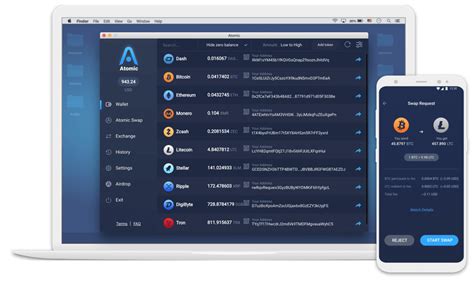Ethereum: How to Install Copay Wallet on Ubuntu Computer?
Installing Copay Desktop Wallet on Ubuntu
Copay is a popular open-source desktop wallet for Ethereum that allows users to store, send, and receive cryptocurrencies. In this article, we will walk you through the step-by-step process of installing Copay on Ubuntu.
Prerequisites
- Ubuntu 18.04 or later (64-bit)
- Desktop environment of your choice (e.g. GNOME, KDE)
Step 1: Update and install dependencies
Before installing Copay, make sure your system is up to date by running the following command:
sudo apt update
Next, install the required dependencies, including OpenSSL and libssl-dev for secure communication with Ethereum nodes:
sudo apt install openssl libssl-dev
2. Step 1: Install Copay
Copy the Copay installation script from the official GitHub repository to your desktop. You can do this by running the following command in a terminal:
wget
Extract the archive to a directory of your choice, such as /usr/local/bin/:
tar xzf ethereum-desktop-4_1_0.tar.gz -C /usr/local/bin/
3. Step 1: Set up Copay
Create a new file called ~/.copay/copy.json and paste the following content:
{
"version": 2,
"name": "ethereum",
"address": "0x..."
}
Replace “0x…” with your Ethereum wallet address.
Step 4: Start Copay payment
Run the following command to start Copay:
./copy --daemon --port 8545
This will start the Copay server and it will listen on port 8545. You can test this by opening a web browser and navigating to in your browser.
5. Step 1: Configure Copay
To add your Ethereum wallet to Copay, you need to set up a wallet PIN (a unique code used for transactions). Follow these steps:
- Open the Copay client.
- Go to "File" > "Add Wallet".
- Select "Ethereum Wallet" and follow the instructions to create a new wallet or import an existing one.
- Set the "Wallet PIN" field (this will be your secret code).
- Click "Apply" and then "Start".
Step 6: Test your wallet

After setting up your wallet, you can test it by sending Ether from one account to another:
- Create a new transaction using the Copay client.
- Send Ether from one account to another.
This will allow you to verify that your wallet is working properly.
That's it! Copay is now installed and running on your Ubuntu system. Remember to keep your wallet secure as it is used for sensitive transactions.
Troubleshooting Tips
- If you encounter any issues during installation or setup, try checking the Copay GitHub repository for known issues.
- Before installing Copay, make sure your system is up to date.
- If you encounter any errors during the installation process, try runningsudo apt-get install –reinstall copay` to reinstall the package.
If you follow these steps, you will successfully install and configure Copay on your Ubuntu system. Happy walleting!
